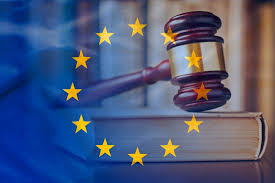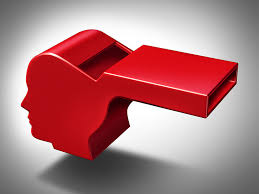Leveraging the EU Whistleblower Directive to Improve Employee Reporting (Part I of II)

Global companies face a number of challenges and a myriad of regulatory obligations. In December 2019, the EU adopted a directive to promote and protect persons who report violations of law.
The EU Whistleblower Directive was adopted in response to a series of scandals that were reported by whistleblowers, including the Panama Papers and the Cambridge Analytica scandal. An EU-sponsored study in 2017 reported that employee reporting of corruption would increase if they witnessed such conduct, and nearly one-third of employees believed that there is no protection for an employee who report wrongdoing.
The EU’s action is another important statement of the advantages of a robust employee reporting system. Research and experience confirm that robust and widely-used internal reporting systems are more effective in identifying and remediating problems. There is an obvious correlation between increased use of hotline reporting systems and improved business performance.
Companies with more internal reporting activity experienced fewer external reports. Conversely, lower levels of hotline activity were associated with suspect corporate governance and financial reporting.

Member States are required to implement the directive requirements into national laws. These new laws are required by a two-year deadline, December 17, 2021. Member States have to require companies with more than 250 employees to implement such a system by December 17, 2021. Companies that have between 50 and 250 employees will have an additional two years to implement a compliant employee reporting system.
Companies will be required to implement compliance reporting channels and provide protection for certain whistleblowers from retaliation. To the extent companies already maintain internal reporting systems may have to modify their programs to meet implementation requirements by member states.
The EU Whistleblowing Directive requires companies located in the EU with 50 or more employees to implement an internal reporting system, and protect whistleblowers from any form of actual, threatened or attempted retaliation against the whistleblower related to termination, negative impact on promotions or salary, unjustified negative performance assessment, transfer and change of workplace, harassment or discrimination.
To secure protection, a whistleblower (1) must have reasonable grounds to believe that the information is true; (2) such information related to a violation of EU or Member State laws or regulations; and (3) used one of the three reporting channels authorized by the Whistleblowing Directive.

The EU Whistleblower Directive includes an Annex which sets out various EU laws relating to which a whistleblower may report a breach while being protected. The laundry list of regulations and directives covers the full range of issues that would be expected. To be protected, the whistleblower report must related to these general issues (e.g. financial issues, human rights violations, and environmental concerns.
The Member States will have to implement a reporting system that is available to all employees and can also extend to self-employed persons, trainees, applicants, shareholders as well as contractors, subcontractors and suppliers.














